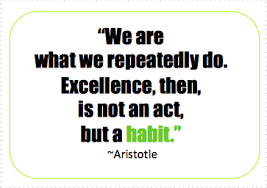Being intentional about preschool chores is key. Although you can start at any age. Chores teach children accountability, responsibility, self discipline, empathy, and how to take care of themselves. Chores also develop fine and large motor skills and give kids a purpose; that they are needed as a member of your family’s economy.
Toddlers want to help Mommy clean and do things around their home. Allow them to help even though it will take longer, it will not be as clean as your standards, and you are screaming on the inside. I wish someone would have told me that.
4 Intentional Ideas For Preschool Chores:
1- MAKE IT A HABIT

“The habits of the child produce the character of the man.”―Charlotte Mason, Home Education; Volume 1, page 118
Habits help us reduce our thinking about every little decision. Steve Jobs wore the same black turtle neck and blue jeans everyday so he would have one less decision to make each morning. Decision fatigue says that too many decisions in a short period of time reduces your ability to make excellent decisions. So the goal is to have our children get into the routine of habits and save their decision making for more important things. It should be our goals as adults as well.
“With habits, we don’t make decisions, we don’t use self-control, we just do the thing we want ourselves to do—or that we don’t want to do.”― Gretchen Rubin, Better Than Before: Mastering the Habits of Our Everyday Lives
2- TRAIN YOUR CHILDREN
There are 5 parts to learning to do a chore well. These steps may take different degrees of time depending on your child. Do not move on to the next step until you are sure your child is ready. If they make mistakes that are not corrected, these mistakes will become habit.
- Watch Mommy do chore. Model and talk aloud to your kids as you clean a sink, match socks, or tidy a room. Discuss how everything should have a home and if it doesn’t, “We should consider getting rid of it.” Use “we” instead of “you”.
- Help Mommy Do chore. Be an encouragement even when things are left messier than you’d like. Go behind child and tell them exactly what you are doing, not critically but encouraging them to fix it. “You missed a spot” is ok. “Quality is not an act, it is a habit.” Aristotle
- Supervise child doing chore. Child does chore while you watch and coach. Encourage, encourage, encourage. It can take 6-8 weeks to form a good habit. Remember to persevere, be consistent, and give grace. This is the time for trouble shooting.
- Allow child to do chore independently. Be sure to check up on child initially. I struggle with this part. “Repetition of the same thought or physical action develops into a habit which, repeated frequently enough, becomes an automatic reflex.” Norman Vincent Peale
- Child teaches another child to do the chore. Here the child becomes the leader and trains another child. He/she will be responsible for all the steps mentioned above. The goal is for the training child to be encouraged by the leader, not bossed. I wish I had known to do this in its entirety. Teaching is completely different from doing. You will need to monitor this step. Instill team work.
Remember your home is a training ground. Your kids are learning.
3- CREATE A SIMPLE CHORE CHART
At my oldest child’s age of 4, a girlfriend and I put together a simple chore chart to begin a morning routine that helped our kids participate with the economy of running our household. This one habit proved to be such a time saver in the long run, especially as we began homeschooling.
There are so many resources now (there wasn’t many in 2000) for age appropriate chores for preschoolers and lists of chores that preschoolers can do. Find what works for you based on what needs to be done in your family and your household. Start small and be flexible.
Below is the chore chart we used for our preschool. Pictures are best for littles and having your child check off each chore as it is finished is another responsibility and a satisfaction. Click picture to access PDF.
4- ENCOURAGE GOOD ATTITUDES
And whatever you do in word or deed, do all in the name of the Lord Jesus, giving thanks to God and the Father by him. Colossians 3:17
Good attitudes are most important. I remember complaining about cleaning my floor and the dirt that had magically reappeared over the week. I read in my devotion one morning about being grateful for the husband and children who made those messes. And how that changed everything! (Sometimes I still need this reminder myself.) Speak these praises aloud so that your kids will hear them and soak them in. Talk to them as you teach them to clean out dirty sinks or help put your husband’s shoes away or whatever messes you encounter.
- We are grateful for the dirty dishes because God provides us with food to nourish our bodies.
- We are grateful for the dirt on the floor because God loves us so much, He gave us our family members and perhaps a dog too.
- We are grateful for dirty laundry because God not only blesses us with a washing machine but also clothes to wear because He loves us so.

Make it fun.
- We used to play a tidy up game when the kids were little. One would play ‘the Queen’ (or King) and would instruct their sibling to put away 3 things. Then the sibling would take a turn until all was clean.
- Play music… Dance.
- Have a cleaning bucket with your child’s name.
- Time yourselves.
- Celebrate when chores are complete.
As my older children moved in to the teen years, I would be lying if I said we didn’t argue now and then about chores. I believe it is because I was lazy in some of my training in the early years. My oldest actually hires out her chores to younger siblings. But gratitude is still the single biggest antidote to complaining and bad attitudes. Bar none.
“You can’t be angry and grateful simultaneously.” Tony Robbins
Please share your chore stories and ideas!



